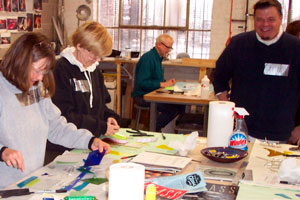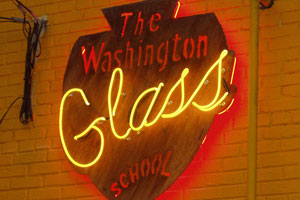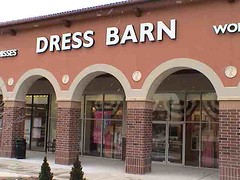Mumblings and grumblings
There's far too many things to write about than I have time to do so, so here's a grab bag of some (but only some) of the things bouncing around my brain right now--
1. I don't think my joke that polygamy is going to be legalized because a household now needs three incomes to be able to buy a house would go over too well in Manassas (See the Post article "New Crowding Law Draws Ire" Activists say changes to definition of family, residential limits in Manassas are anti-immigrant.)
2. I guess the belief that DC is a world-class city still hasn't repatterned the thinking of DC elected and appointed officials. (See "Land Sale Possible to Fund Stadium: Development Could Help Cover Project Overruns" from the Post.)
"We are looking to the development community to help," council member Jack Evans (D-Ward 2) said.
 She's no developer! Jack Evans and Marsha Ralls at a party last December. (Kyle Samperton -- Washington Life Magazine).
She's no developer! Jack Evans and Marsha Ralls at a party last December. (Kyle Samperton -- Washington Life Magazine). I laughed out loud when I read that... No wonder so many development projects get off scott free and provide little if any amenities-benefits beyond the minimum required. Help? Tokens are more like it.
3. It's a competitive market in the arts. I found an extensive brochure ("Strathmore News") for Strathmore Hall, the Montgomery County Arts facility, in the Cosi shop on Capitol Hill. It's about 22 miles away from Cosi, and farther away than the Kennedy Center.
4. Sometimes the best help you can get is to help yourself. Instead of looking for developers to help, once it was disclosed that the house was on the market, it took just two weeks for Montgomery County Maryland to commit to buy the house and the attached slave quarters cabin that was the home of Josiah Henson, the man whom Harriet Beecher Stowe used as a model for the Uncle Tom character in her 1852 novel on slavery, Uncle Tom's Cabin. (See the AP story "3BR, $1 Million. Plus: Uncle Tom's Cabin.")
 Matt Houston/Associated Press. Greg Mallet-Prevost's family is selling their house, whose attached cabin, an old slave quarters, was made famous by Harriet Beecher Stowe.
Matt Houston/Associated Press. Greg Mallet-Prevost's family is selling their house, whose attached cabin, an old slave quarters, was made famous by Harriet Beecher Stowe. Meanwhile, two important foundations of the DC arts community, the Washington Sculpture Center and the Washington Glass School are being displaced by the new baseball stadium. This has been known for 16+ months. *The Glass School is now moving to Arlington County, and who knows what will happen with the Washington Sculpture Center. In either case, when the time came to make things happen, DC did not. (See "D.C. Seizes 16 Owners' Property for Stadium.")
*Note: I was unsuccessful in attempts to lure the Glass School to Brookland, Ivy City, or the H Street neighborhood. But we tried... Part of the difficulty: (1) their need for steady 800 volt electric current requires a dedicated electric transformer that Pepco charges $80,000 for, including installation; and (2) because the Glass School isn't really profitmaking, they can't afford rents much higher than $10/square foot. These constraints tend to require "subsidy," meaning municipal involvement and support. There wasn't any...
 Patricia Ghiglino's art studio is on the site of a planned baseball stadium. To stay near the stadium would cost her hundreds of dollars more a square foot than she would receive from the sale, she said. (By Gerald Martineau - The Washington Post)
Patricia Ghiglino's art studio is on the site of a planned baseball stadium. To stay near the stadium would cost her hundreds of dollars more a square foot than she would receive from the sale, she said. (By Gerald Martineau - The Washington Post) Washington Glass School.
Washington Glass School.
5. In "Between the Holidays, a City Basks in Sunlit Silence," Will Haygood writes in the Post about how the city center is relatively empty in the week between the holidays. Except for 7th Street NW, and why is a matter of contention (MCI Center vs. pedestrian-centricity, impact of Jaleo, etc.) this is what downtown looks like already, at night and most weekends.
 A worker sweeps up on Pennsylvania Avenue yesterday, when much of the city was still on holiday. (By Michael Robinson Chavez -- The Washington Post)
A worker sweeps up on Pennsylvania Avenue yesterday, when much of the city was still on holiday. (By Michael Robinson Chavez -- The Washington Post)6. In a letter to the editor today, the Vice Mayor of Purcellville, Virginia writes that "local leaders should manage growth." Without urban growth boundaries and mandated state planning, like in Oregon, it is the rare public official that can hold his/her ground when a developer offers to "help." (See "City as a Growth Machine: Toward a Political Economy of Place" by Harvey Molotch.)
 Dress Barn and similar chain stores are being enticed into the District of Columbia with the lure of tax increment financing, see "D.C. to consider incentives for discount retail in NE," from the Washington Business Journal.
Dress Barn and similar chain stores are being enticed into the District of Columbia with the lure of tax increment financing, see "D.C. to consider incentives for discount retail in NE," from the Washington Business Journal.  The home of Susette Kelo is shown in the Fort Trumbull section of New London Conn., in the Tuesday, Feb. 8, 2005 file photo. Kelo is one of several property owners in the area refusing to sell or leave their properties to make way for additional development. Alarmed by the prospect of local governments seizing homes and turning the property over to developers, lawmakers in at least half the states are rushing to blunt June's U.S. Supreme Court ruling expanding the power of eminent domain. (AP Photo/Jack Sauer)
The home of Susette Kelo is shown in the Fort Trumbull section of New London Conn., in the Tuesday, Feb. 8, 2005 file photo. Kelo is one of several property owners in the area refusing to sell or leave their properties to make way for additional development. Alarmed by the prospect of local governments seizing homes and turning the property over to developers, lawmakers in at least half the states are rushing to blunt June's U.S. Supreme Court ruling expanding the power of eminent domain. (AP Photo/Jack Sauer) Many developers are happy to help develop the vacant and underutilized properties along the route of the now likely to be built Inter-County Connector Toll Road between upper Montgomery County and Prince Georges County Maryland. Washington Post graphic.
Many developers are happy to help develop the vacant and underutilized properties along the route of the now likely to be built Inter-County Connector Toll Road between upper Montgomery County and Prince Georges County Maryland. Washington Post graphic.Index Keywords: civic-engagement



0 Comments:
Post a Comment
<< Home